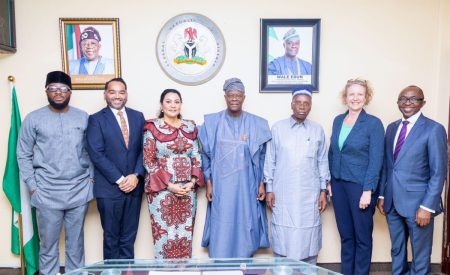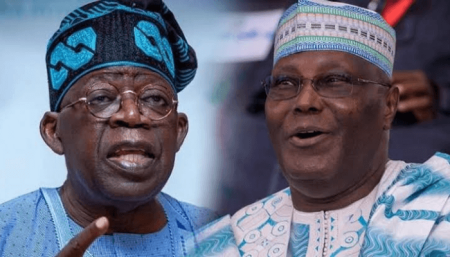 12 February 2017, Sweetcrude, Port Harcourt — The hall was full to capacity and some of those who had not secured seats and space inside craned their necks through the open windows to have a glimpse of the moderator and the speakers. The moderator, a bearded unionist of Efik stock clapped his hands above the microphone on the table to dampen the raucous uproar the last speakers had caused with his dissension. The crowd gradually quietened, and the moderator picked up the microphone and introduced the next speaker. A loud ovation followed the announcement and the crowd gradually parted to make way for her. She is a well-known activist with undoubted intellectual credentials. She is greeted by the crowd with her pseudonyms and nicknames as she walks to the podium. As she picks up the microphone on the lectern, the moderator raises a palm to her and reminds her of the rules: 15 minutes max ma’am and no incitement, please.
12 February 2017, Sweetcrude, Port Harcourt — The hall was full to capacity and some of those who had not secured seats and space inside craned their necks through the open windows to have a glimpse of the moderator and the speakers. The moderator, a bearded unionist of Efik stock clapped his hands above the microphone on the table to dampen the raucous uproar the last speakers had caused with his dissension. The crowd gradually quietened, and the moderator picked up the microphone and introduced the next speaker. A loud ovation followed the announcement and the crowd gradually parted to make way for her. She is a well-known activist with undoubted intellectual credentials. She is greeted by the crowd with her pseudonyms and nicknames as she walks to the podium. As she picks up the microphone on the lectern, the moderator raises a palm to her and reminds her of the rules: 15 minutes max ma’am and no incitement, please.
“People of the South-South states, there is no denying there is a scramble for the partitioning of Nigeria. It is on and we cannot continue to be in denial or await a fate that is handed to us by those who are prudently making vigorous arrangements for new alignments and workable affiliations. Make no mistakes my people, we stand to be taken again by the astute or by the sheer circumstances of lethargy if we fail to articulate a position now and to commence the work that would usher us into a new era of hope, independence and predictability.” Her voice went up an octave as she rendered the last word with a flourish. The crowd roared their appreciation which she acknowledged with a thin smile and raised her hand for silence.
“The last speaker told us Igbos are avaricious, that they are clannish and too organised a majority to enter into an assembly of federated states with. What he did not tell us is that since 1914, we have enjoyed or suffered political relations with the Igbo. He did not mention that Ndi Igbo controlled the politics of the Eastern Region when oil was discovered in our lands in 1956. The speaker neglected to tell you when he spoke of our inclusion in a civil war without consultation that all the Easterners killed and maimed in the killings that led to the Declaration of Secession by the Governor of the Eastern Region did not all know the meaning of “bia.” Had he been more trusting of your commitment to evaluate your best options, he would have mentioned to you that it would indeed have amounted to political discrimination and an insularity approximating to the clannishness he spoke of for the Governor, at the Declaration of Secession, to have excluded some territories of a defined and precise political enclave known both to Nigerians and foreigners as the Eastern Region of Nigeria on the grounds that those territories were not populated by his ethnic stock!” The crowd roared again. Men and women were on their feet clapping and hugging and cheering. It was an electrical moment.
“My people, these are our unfortunate realities. You all know that in about fifty years after the weak assurances of the Henry Willinsk Commission this is the very first meeting attended by delegates from our states without political affiliations. We simply do not have the cohesiveness to act together, alone. As I speak with you there is not even a single delegate from Edo State in this hall. Let me assure you that it is not because they do not acknowledge the imminent collapse of the present contraption or because they lack the political nimbleness for organised preparation. From what a lot of them have told me, they feel a sense of kinship with the Yoruba and the shared solidarity of rape victims with our five states. No one of us can tell now where their pendulum would swing but swing, it surely will. Our reality is that we have over decades of oppression failed to chart a common agenda separate from the political identity that was thrust upon us by enemies with dark motives. Until 2015 when we joined the fray by virtue of Providence, the South South Region was taken at will by the powerful forces of the day.
“As I said before, we have had political relations with the Igbo since 1914 and since the Petroleum Theft of 1969, Igbo states and LGAs have, like other non-producing states, enjoyed the benefits of Nigeria’s sick invention: the federal allocation. Yes, we are bled to provide for the administration of 36 states and 774 LGAs, if you want to discount the insane and unaccountable profligacy of the NNPC. Biafra will be administered by the tax receipts of the federal government; Biafra promises full resource control but the central regulation and taxation of all industries. What Biafra portends in terms of relations with Ndi Igbo, is to increase and decrease in various respects, our mandatory interactions which are on-going even now by virtue of our Nigerianness. What Biafra…Tamuno eh!” the speaker bellowed into the microphone which fell with a loud echo on the concrete floor as two gunshots rang out in quick succession. The crowd was a mass of panic and confusion as two more shots tore into the maze. The moderator had disappeared and the speaker, the daughter of a Kalabari judge and a Scottish pathologist, was at a window fighting to exit the hall against two other activists.
The acrid smell of gun smoke still hung in the air as uniformed men in boots took positions in the almost empty hall. They made no attempt to arrest the few people in the hall but watched with amused expressions as the hall emptied itself of political zealotry. The head of the team, a tall lanky officer in his early thirties strolled to the base of the podium. Like his men, he was in black uniform. “Are you running? Crazy people who won’t allow us peace. Stay back so we can discuss the modalities for secession. Maaad people. We are talking about a depressed economy and crazy Nigerians will not stop talking about Oil, Gas, Hausa people, Biafra and Resource Control…” He stopped talking as his right trouser pocket vibrated, emitting a shrill sound. He flipped his phone open and smiled at the creased face of his aged father. “Dad,” he said into the phone, “kedi?” He was Igbo.



